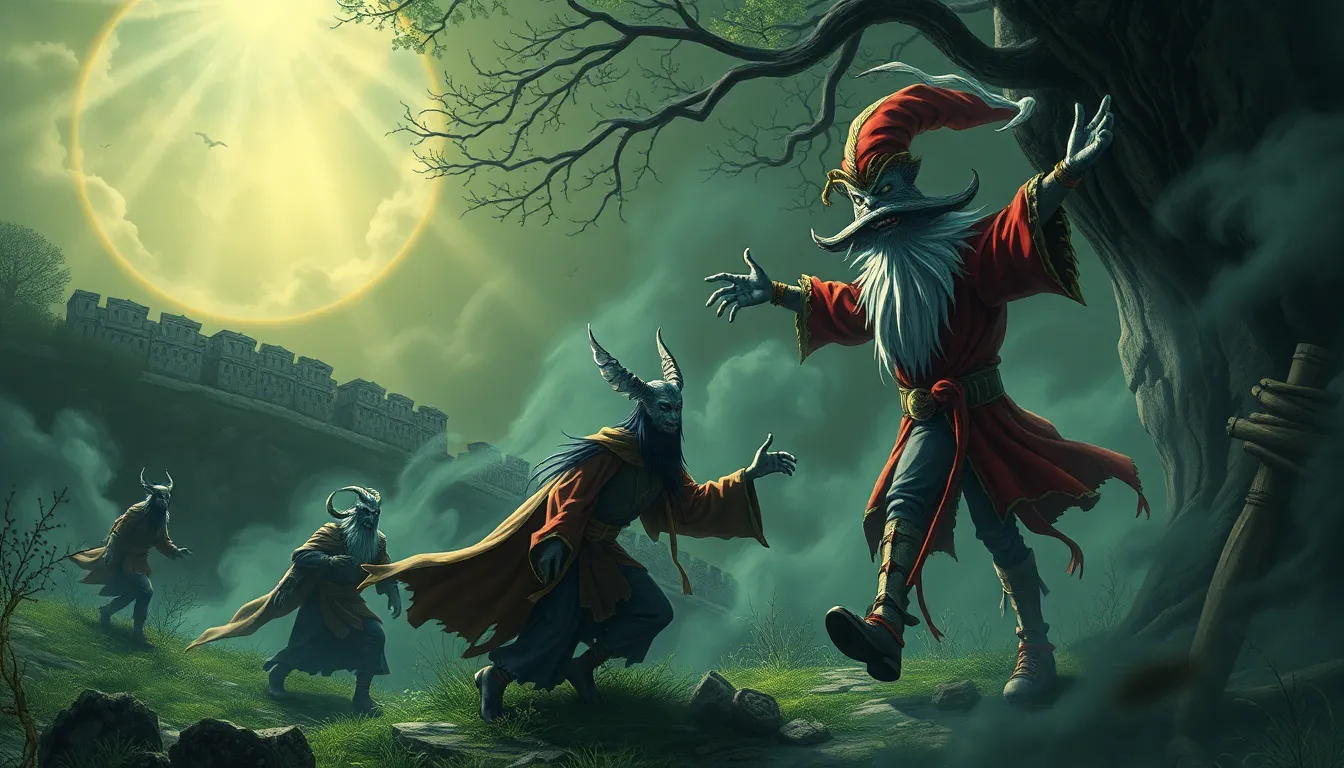The Enchanted Garden: Myths of Nature’s Magic
1. Introduction to the Enchanted Garden
The concept of the enchanted garden transcends cultures and epochs, symbolizing a space where nature flourishes and magic thrives. An enchanted garden is often portrayed as a place filled with beauty, mystery, and spiritual significance, where the natural world intertwines with the mystical. In various cultures, these gardens are believed to hold secrets, serve as portals to other realms, or even act as sanctuaries for mythical beings.
This article will explore the historical roots, symbolism, folklore, and modern interpretations of enchanted gardens. It will delve into the psychological impacts of nature’s magic and provide practical tips for creating your own enchanted space.
2. Historical Roots of Nature’s Magic
Throughout history, civilizations across the globe have revered nature, often manifesting this reverence in the form of gardens. Ancient Egyptians, for example, cultivated gardens as sacred spaces dedicated to their gods, rich with symbolism and significance. Similarly, the Hanging Gardens of Babylon are steeped in myth, exemplifying the desire for harmony between human creations and nature.
Many myths and legends associated with gardens highlight their importance in human culture:
- The Garden of Eden: A biblical paradise symbolizing innocence and divine creation.
- The Fields of Elysium: In Greek mythology, a resting place for the heroic and virtuous.
- The Lotus Garden: In Eastern traditions, representing purity and enlightenment.
3. Symbolism of the Enchanted Garden
The enchanted garden serves as a powerful symbol of paradise and utopia. It represents a space where humanity can reconnect with nature and experience beauty in its purest form. Gardens are often linked to themes of:
- Rebirth: The cyclical nature of life is often mirrored in the seasonal changes of a garden.
- Fertility: Gardens are places of growth and abundance, embodying the life-giving aspects of nature.
- Transformation: Just as a garden evolves through the seasons, so do the lives of those who tend to it.
4. Folklore and Mythical Creatures
Enchanted gardens are often inhabited by mythical beings, each contributing to the garden’s magic. Commonly found creatures include:
- Fairies: Delicate beings associated with nature, often seen as protectors of the garden.
- Dryads: Tree nymphs that embody the spirit of trees, symbolizing growth and strength.
- Gnomes: Earth-dwelling creatures believed to guard treasures and the soil.
Many stories recount encounters with these creatures, often emphasizing themes of kindness, respect for nature, and the consequences of human actions.
5. The Role of Plants and Flora in Myths
Plants in enchanted gardens are often imbued with magical properties. Some notable examples include:
- Mandrake: Known for its human-like root, believed to possess healing properties.
- Nightshade: Associated with witches and dark magic, often seen as both enchanting and dangerous.
- Rosemary: Symbolizing remembrance and fidelity, used in various rituals and folklore.
These plants not only enrich folklore but also inspire countless tales about their magical uses and the consequences of their powers.
6. The Enchanted Garden in Literature and Art
Literature and art have long celebrated the enchanted garden, often portraying it as a haven for exploration and discovery. Notable works include:
- Alice’s Adventures in Wonderland by Lewis Carroll: A tale that transforms a simple garden into a world of whimsy and imagination.
- The Secret Garden by Frances Hodgson Burnett: A story of healing and transformation within the confines of a neglected garden.
- The Garden of Forking Paths by Jorge Luis Borges: A narrative exploring the infinite possibilities and paths within a garden setting.
Visual arts also reflect the allure of enchanted gardens, with works ranging from Impressionist paintings that capture the beauty of flowers to intricate tapestries depicting mythical scenes in lush landscapes.
7. The Psychological Impact of Nature’s Magic
Engaging with gardens and nature has profound effects on mental well-being. Studies suggest that exposure to green spaces can:
- Reduce stress and anxiety levels.
- Enhance mood and overall happiness.
- Boost creativity and cognitive functions.
The therapeutic aspects of enchanted gardens encourage mindfulness, offering a sanctuary for reflection and rejuvenation.
8. Modern Interpretations and Trends
In today’s society, there is a resurgence of interest in gardening and nature, with movements such as eco-gardening and urban green spaces gaining momentum. Contemporary trends include:
- Sustainable gardening: Emphasizing eco-friendly practices and biodiversity.
- Community gardens: Bringing people together to cultivate and share resources.
- Mythical elements in design: Incorporating whimsical features like fairy houses and magical pathways.
These trends reflect a desire to reconnect with nature and the mystical aspects of gardening.
9. Creating Your Own Enchanted Garden
Designing your own enchanted garden can be a fulfilling endeavor. Here are some practical tips to create a magical space:
- Choose the right location: Select a space that receives ample sunlight and has good soil.
- Incorporate diverse plants: Mix flowers, herbs, and shrubs to create texture and visual interest.
- Add whimsical decor: Consider fairy lights, sculptures, and charming pathways to enhance the magical atmosphere.
By thoughtfully selecting plants and decorations, you can create a space that resonates with enchantment and invites exploration.
10. Conclusion: The Lasting Allure of Nature’s Magic
The enchanted garden continues to captivate our imagination, reflecting our deep-seated connection to nature and the mystical. From ancient myths to modern trends, the allure of these magical spaces endures, inviting us to explore and appreciate the wonders of the natural world.
As you embark on your own journey, take a moment to discover the magic of nature in your life. Whether through gardening, visiting local parks, or simply savoring the beauty of flora around you, the enchantment of nature awaits.



